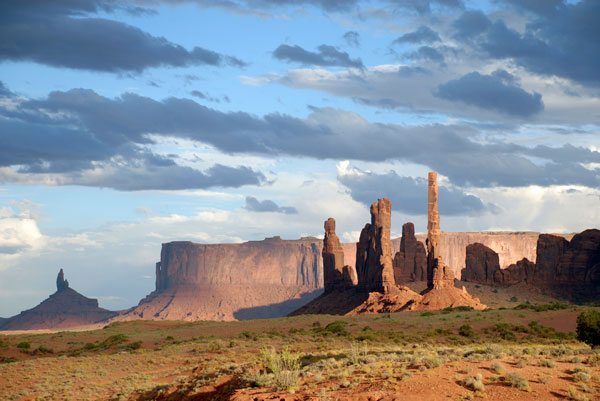“Relocation is a word that does not exist in the Navajo language. To be relocated is to disappear and never be seen again.” – Pauline Whitesinger, Relocation Resister
For the past fiver years, relief caravans have been organized in Boulder, CO. to support the Black Mesa Reservations in North East Arizona. In Noverember of 1995, the Caravan took 23 ton of food to the area. During Spring Break the year, March 23rd to March 31st, the caravan again organized a group of supporters to go to Black Mesa to show support for the resisters and help out any way we can.
All the directions for the caravan comes from the elders of the resistence community.
The Background
In 1974, the U.S. Congress passed Public Law 93-531 allegedly to settle a so-called land dispute between the Hopi and Dineh people. The “dispute” being settled by PL 93-531 was, in reality, manufactured by Peabody Coal Company as a means by which they would be able to strip mine one of the largest coal reserves in North America. The land, known as Black Mesa, is home to thousands of traditional sheepherders, weavers, silversmiths and farmers. This law created and intensified a dispute between the traditional communities and the triblal government.
The war against the people on Black Mesa has been recognized internationally. In the late 1980s the United Nations described the case of forced relocation as one of the most flagrant violations of indigenous peoples’ human rights in this hemisphere, placing it in the same category as the genocide of indigenous peoples in Brazil and Guatemala.
Many families on Black Mesa are now in their third decade of resisting relocation, attempting to continue their traditional lifestyle. As a result of their resistance the U.S. Government is waging low-intensity warfare against the people and the land. This includes impounding sheep, cattle and horses, restricting wood gathering, depleting the water supply (as a result of the slurry line used illegally by Peabody), destroying wells, bulldozing plants and trees used for medicine and food, constant surveillance by federal agents and F-16 fighter jets flying 100 feet off the ground.
Despite years of federal court mediation, the U.S. Government continues to deny the people the right to live on their ancestral homeland. Because of the U.S. government’s genocidal policies, the elders of the resistance have requested outside support.
The Project
In response to the elder’s request, we have organized this yearly relief caravan hoping to help them maintain their presence on the land while they fight legal battles. All food is bought in bulk from wholesale distributers. We buy basic staples that the people can relate to: flour, potatoes, onions, sugar, etc. These items are distributed to resistance families (Dineh and Hopi alike) throughout the Black Mesa region, in an attempt to help these people endure the winter.
Call For Support
We plead that you understand the intensity of the resistance – without outside support, food and supplies are extremely scarce. Financial support is desperately needed. We see this as the public’s opportunity to help stem the tide of cultural genocide that has been going on in this country for the past 503 years, and to speak out in solidarity with traditional people faced with bureaucratic abuse. Please note that 100% of the funds raised will go directly to the resistance communities. There are absolutely no organizational costs for the caravan, and all staff members are volunteers. (We have jobs. We are donating our own trucks and gas money as well.) Donations are tax deductible through the Traditional Support Caravan (Tax ID# 74-230-2470).
This will be the 4th annual caravan. Just last year we delivered 22 tons of food and other supplies to hundreds of families. For more information about this year’s caravan, or to help our effort, please call the Traditional Support Caravan at (303) 938-9916, or write to:
Traditonal Suuport Caravan 1006 15th #1 Boulde CO. 80302
You can also E-mail us at: tsc@colorado.edu
Thank you for your solidarity and support.





